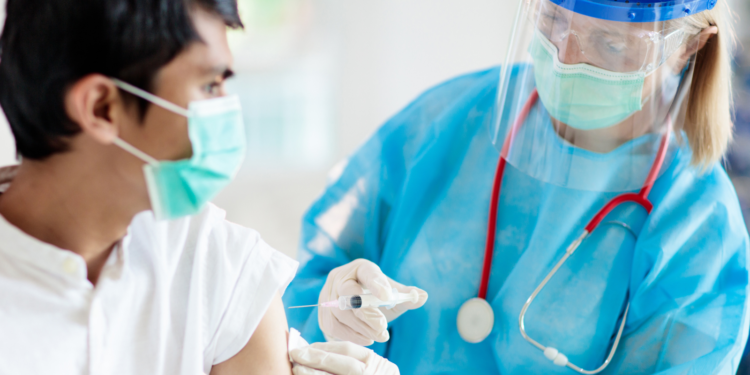The research-based biopharmaceutical industry has urged younger people to get vaccinated for COVID-19 as the latest research, carried out by Ipsos MRBI for the Irish Pharmaceutical Healthcare Association (IPHA), shows hesitancy is holding steady at around 9%, with higher rates among younger people.
The research shows that 5% of people will refuse a COVID-19 vaccine. Among 18 to 34-year-olds, that figure is 9%. Overall, 4% of people are unsure about taking a COVID-19 vaccine. Among 18 to 34-year-olds, that figure is highest, at 8%.
Around 1.2 million people are aged between 18 and 34 out of a population of about five million.
Since the start of the year, the proportion of people overall who will refuse a COVID-19 vaccine has remained steady at around 5%. Although the number of people who are unsure about getting a COVID-19 vaccine has declined since January, the level has slowed to around 4% in recent months.
Overall, 91% of people either intend to get vaccinated for COVID-19 or have already received a vaccine for the disease, according to the research. The results show that 2% of people will take a COVID-19 vaccine but, when combined with the cohort that has received at least one COVID-19 vaccine dose, or 89% of the sample*, that number rises to 91%.
The research-based biopharmaceutical industry urged more vaccination in the community.
Bernard Mallee , Director of Communications and Advocacy at IPHA, said: “Vaccination is reducing serious illness, hospitalisations and deaths caused by COVID-19. Overall, the vaccination rate is very high. But hesitancy, although proportionately small, is still sticky, especially among some younger people. We urge everyone who is eligible to get vaccinated so that we can maximise protection in the community. Vaccination, alongside adherence to basic public health advice, can control the recent rise in infections. It is important that we work together so stop the further deterioration of the epidemiological situation.”
With the exception of clean, safe drinking water, vaccination is among the most successful and cost-effective public health interventions ever. The World Health Organisation estimates that vaccines save up to three million lives every year.
We have vaccines to prevent more than 20 life-threatening diseases, helping people of all ages live longer, healthier lives. Vaccines administered in Ireland already help to prevent more than a dozen diseases including measles, meningitis and whooping cough. Vaccines have ridded the world of smallpox, driven polio to the brink of eradication, and virtually eliminated measles, diphtheria and rubella in many parts of the world.









